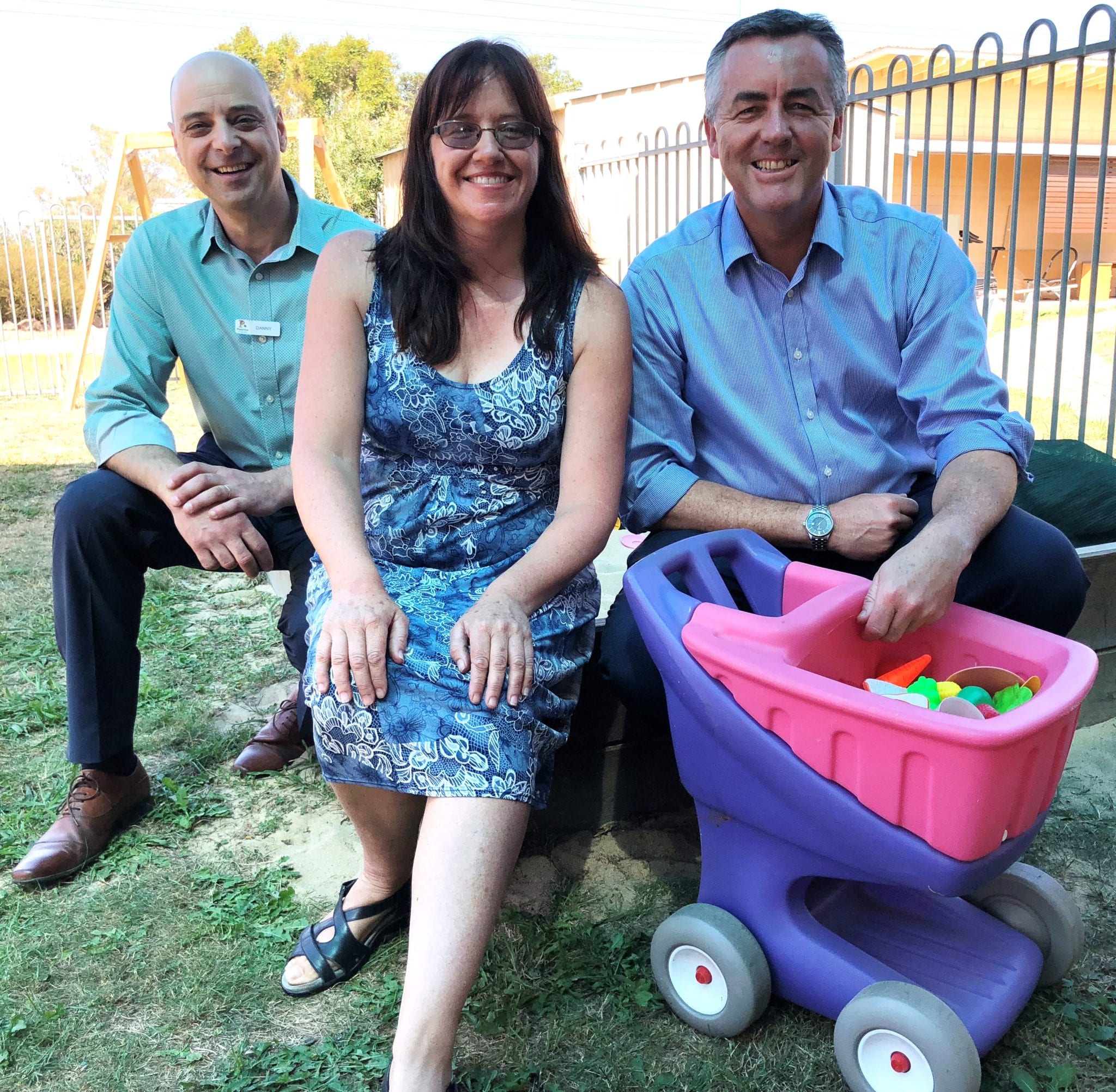Federal Member for Gippsland Darren Chester has welcomed Federal Government funding for a playgroup in Bairnsdale for children with Autism Spectrum Disorder.
Minister for Families and Social Services Paul Fletcher has announced more than $1.125 million in funding for Playgroup Australia to continue running its PlayConnect playgroups.
Mr Chester discussed the importance of continued funding with Mr Fletcher, after he visited Bairnsdale’s PlayConnect playgroup last month.
“The families I met said this playgroup provided an important connection for families with children with ASD or ASD-like characteristics,” Mr Chester said.
“It gives social support to family members and is a safe space for children play with other children under the guidance of trained and experienced early childhood facilitators.”
Mr Chester said staff members and parents had been worried about the program’s future as funding was yet to be announced beyond June 30 this year.
“Without government support, parents, some of whom travel long distances with their children to attend, would need to pay $75 for each session,” Mr Chester said.
“I hope this funding announcement takes away any anxiety families and staff members may have had about the future of this program.”
Mr Fletcher said access to best practice early childhood programs was vital for children with developmental delay or disability.
“PlayConnect playgroups provide play experiences that are responsive to the needs of children aged 0-6 with autism or autism-like symptoms and provide an environment of peer-support for families,” Mr Fletcher said.
“Around 42 PlayConnect playgroups around Australia help hundreds of children with disability participate in their communities and access the same choices, opportunities and experiences as other children.
“By investing in children before they reach school age, we are helping to maximise their opportunities in education, the community and in work, later in life.”

